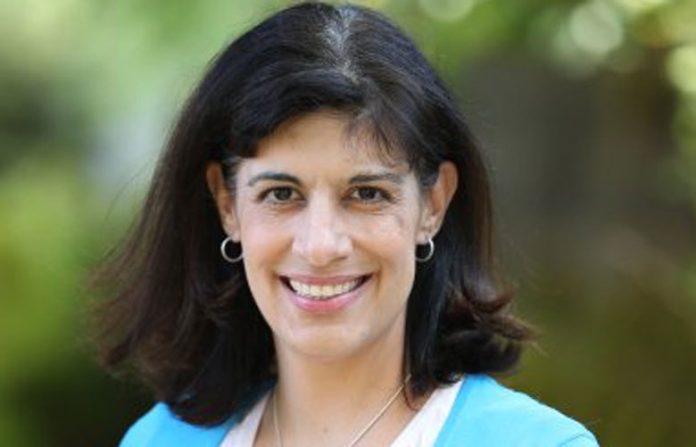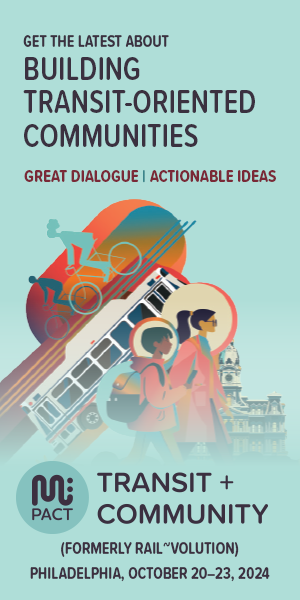The Urbanist Elections Committee invited state legislature candidates in the Seattle metropolitan region to fill out our questionnaire to participate in our endorsement process. We based our endorsement decisions on those questionnaire responses augmented by follow-up Zoom interviews. Below are the responses of Nicole Macri, who is running for reelection in Legislative District 43, Position 1.
What lessons about government revenues and fiscal priorities from the wake of 2008 would you apply in responding to the Covid-19 crisis? (200 words or less)
The legislature punted on revenue in 09-10, in part due to the big federal stimulus package (ARRA). The 2010 midterms were devastating for Democrats, particularly in the Senate, making it impossible to pass revenue. With the “Majority Coalition Caucus” in place, Governor Gregoire and the legislature opted for deep budget cuts, especially to discretionary safety net programs. The failure to act more swiftly led to the devastating impacts we are seeing from the COVID emergency. It is essential we invest in systems that build resiliency for people across this state. Even with a significant modernization of the tax code, the revenue hole to fill is unprecedented, and will require federal assistance. We must apply an equity analysis to upcoming budget decisions, increase safety net programs, and push for a state-level expansion of unemployment to currently ineligible immigrant workers. We must continue to invest in public & behavioral health and ensure access to health care. Small businesses will need government to recover. It will be more daunting than any other budget endeavor our state has undertaken. But, if we lead with vision and persevere, we can build a more equitable economy that works for everyone, and not just the wealthy few.
Would you vote for a bill that ends the ban on rent control in Washington? Why or Why not? (50 words or less)
Yes. I introduced HB 2583 in 2018 and HB 2779 in 2020. The rent is too high for too many people, and the majority of evictions are due to inability to pay rent. Limits on year over year rent increases, and on fees, are one important tool in improving housing stability.
What role do you see the state playing in enacting land use reform, and what should that reform prioritize? (200 words or less)
Statewide land use policy can help ensure that all communities can have the amount and diversity of housing option needed to support vibrant and diverse communities. While some locally-informed land use policy is appropriate, acting on their own, local jurisdictions have failed to implement the full range of land use policies that support adequate affordability and equity in housing access. I introduced HB 2780 (2020) to create more housing options in traditionally single-family zones, and was an active co-sponsor of bills to expand urban housing supply (see 1797, 1923, 2343, and 2570 in 19-20). Land use policy alone does not address the deep affordability needs across the state. That is why I also support greater rent regulation, the strategic use of tax incentives such as the multi-family housing tax exemption, and direct rental assistance to ensure people with the greatest housing needs can access safe, healthy, affordable homes.
What should be the major components of a climate package? (50 words or less)
We need policies and investments that eliminate carbon across three primary sectors – energy, buildings and transportation – while simultaneously ensuring justice for the most impacted communities. A carbon pricing policy paired with investments in zero-emission infrastructure is the most effective tool to do this. Incentives and regulations also expedite carbon reductions.
What should be the top strategies for the state to fix the cycle of segregation, disinvestment, gentrification, and unaffordable housing in our cities? (200 words or less)
We need to: 1) increase our investment in building and operating publicly financed, accountable high-quality, rent controlled housing, 2) update zoning to support the creation of more diverse types of housing in all communities, 3) enhance tenant protections including capping fees and rent increases and requiring good cause to end all tenancies, 4) make massive investments in emergency and long-term rent assistance, particularly in light of the economic impacts of COVID. To do this, we must modernize our tax code.
What’s your roadmap to fixing educational inequities in Washington state? How can Washington state comply with its constitutional duties regarding education? (200 words or less)
We need to address inequities both inside and outside of the school system to ensure all students have equitable access to education. This requires modernizing our antiquated, regressive tax code. We need to begin with investments in early learning, and increase investments in K12 basic education including special education, and the support all students and families need for students to succeed, including family support counselors and nurses. Our districts are still over-reliant on local levies and PTA fundraisers to provide the basics, setting up inequities within and across districts. We must strengthen our safety net support for the lowest income families, including TANF cash stipends, SNAP food benefits, and rent assistance programs.
Do you think Washington state should have an income tax? If yes, what is the legislative path? If not, would you pursue any tax reform? (100 words or less)
Yes. Closing the tax break on capital gains will set up a legal test that informs how an income tax can be structured. Implementing a business tax on payroll of high earners is another important step to move WA to a more modern and diverse tax code. To rebalance our tax code, we need to reduce the sales tax rate which disproportionately harms low-income families, and scrap the business & occupation tax which burdens small businesses. We can replace these out-of-date sources with graduated personal and corporate income taxes, and expand the lower-rate sales tax beyond just goods to include services.
While California and Oregon have passed a clean fuels standard aiming to meet their climate goals, Washington did not, as the bill stalled out last session. Would you vote for it? If not, what is the route to meeting our climate goals? (150 words or less)
I’ve voted twice in the House for a clean fuels standard, and if re-elected, hope to do so again in 2021. After the failure of the bill in 2020, I joined many colleagues in signing a letter stating that the passage of a clean fuels bill will be a prerequisite for voting for a transportation revenue package. (https://assets.documentcloud.org/documents/6780895/House-Dems-Clean-Fuels-Letter.pdf). Our need to address climate change is at least as urgent as our need to address our transportation infrastructure, if not moreso. We can and must do both.
What percentage of the state’s transportation budget should be for alternatives to cars, such as transit, biking, and pedestrian infrastructure? (100 words)
The silver lining in the disastrous state of our transportation budget is we can re-envision it. We dedicate only a small portion of the transportation budget to transit, in part due to the constitutional restrictions on use of gas tax. I’d approach it by setting multi-year targets to reduce car trips by increasing funding in transit, biking and pedestrian infrastructure. I don’t know what the right metrics are, but for example, Los Angeles, with a population that exceeds WA state, set a 10 year goal to reduce car trips by 20%. This requires more stakeholder input and political will building.
What should be a higher priority: electrifying personal vehicles or reducing the number of trips made in personal vehicles? Explain how to achieve your priority. (50 words).
Reducing personal vehicle trips is first priority. The huge anticipated shortfalls in the transportation budget call us to reconsider our entire approach. We should implement a road usage charge, congestion pricing, and increased registration fees on fossil fuel vehicles to vastly expand investments in transit, bike and pedestrian infrastructure.
The Urbanist Elections Committee’s take in LD43-1:
Incumbent badass Nicole Macri is essentially running unopposed, so this vote is really a no-brainer. Macri has sponsored a bevy of health-related bills aimed at rectifying inequities and protecting the vulnerable–not to mention sponsored several high profile attempts at serious land use reform. Macri introduced multiple bills to repeal the ban on rent control, and has committed to clean fuels as a necessity in the next transportation package. She takes a balanced rather than ideological approach, consistently links climate change, health, land use, livability, and transportation, and she brings a clear-eyed compassion that humbles us. Vote Macri.

Elections Committee
The Urbanist was founded in 2014 to examine and influence urban policies. We believe cities provide unique opportunities for addressing many of the most challenging social, environmental, and economic problems. We serve as a resource for promoting urbanism, increasing political participation, and improving the places we live. The Elections Committee consists of community volunteers and staff members of The Urbanist and is a standing body representing the political values of our organization.




